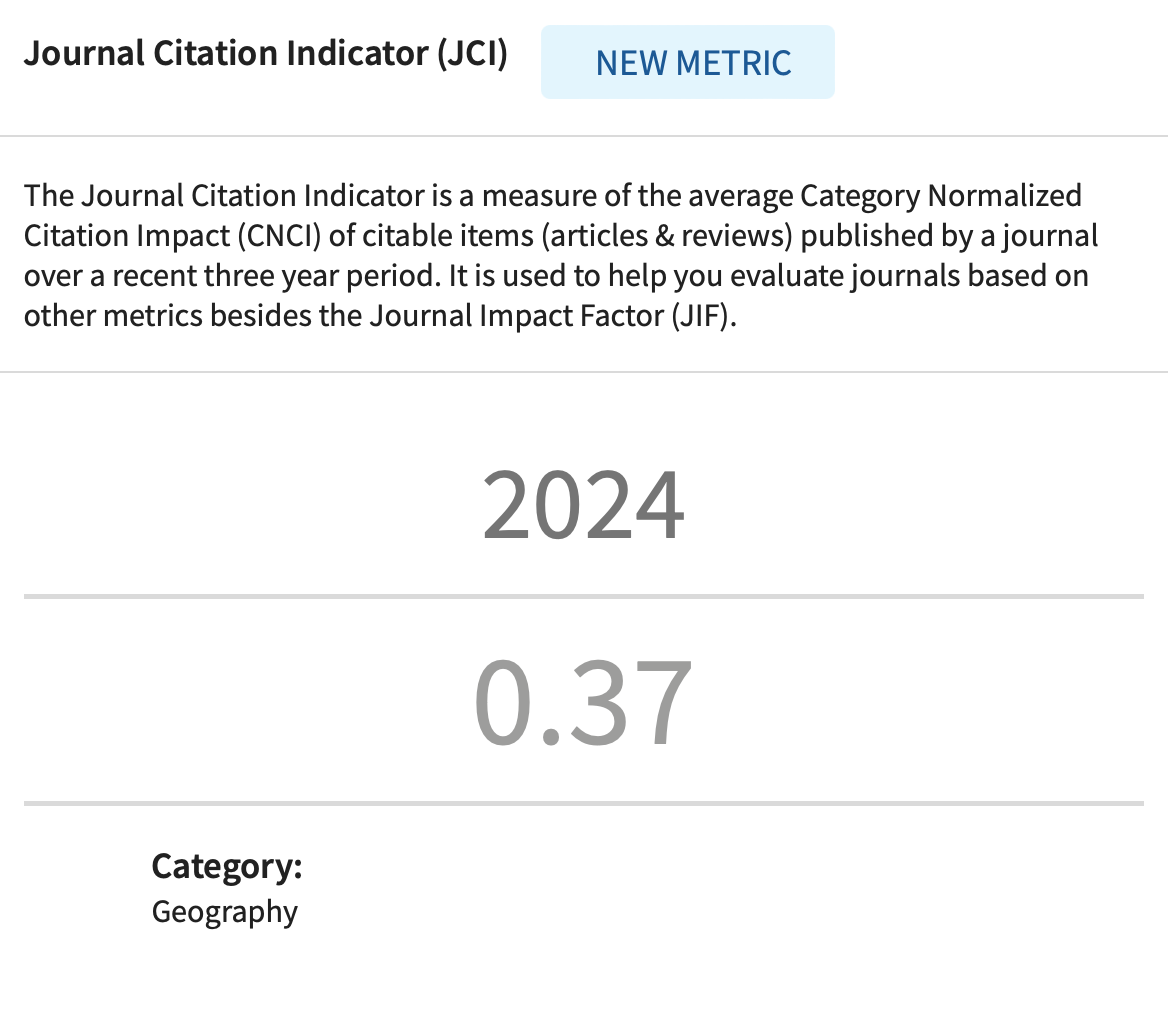TERRITORIAL IMAGE AND BRANDING AS TOOLS FOR DEVELOPING WESTERN KAZAKHSTAN AS A TOURIST DESTINATION
DOI:
https://doi.org/10.2298/IJGI2103311SKeywords:
territorial image and branding, historical and cultural brand, natural brand, tourist destination image, Western KazakhstanAbstract
With the development of tourism, it has been necessary modernization of ways on being attended by tourists. Comparatively new method of influencing to a customer is branding, has been the most significant process in terms of promotion, which identify features of exact territory in contribution of competitive activities for being attractive for tourists. The article is aimed to identify the existing and promising tourist brands of Western Kazakhstan. Since territorial branding is a key factor in the development of tourism industry, the authors conducted a survey among respondents from different regions of Kazakhstan to identify potential tourist brands, main associations, as well as challenges and opportunities for recreation and tourism. The research was carried out using the Google Forms platform and sociological survey. The research results prove that there are unofficial leading brands in the region, which are likely to become the region’s official tourist symbols. Besides, both favorable and unfavorable factors for recreation demonstrate the controversial development of tourism industry in the research area. Creation, development, and promotion of a tourist brand plays an important role in the tourism and recreation area. This contributes to strengthening the tourist destination image in the tourism market.Article metrics
References
Aaker, D. A. (1996). Measuring Brand Equity Across Products and Markets. California Management Review, 38(3), 102–120. Retrieved from https://www.semanticscholar.org/paper/MEASURING-BRAND-EQUITY-ACROSS-PRODUCTS-AND-MARKETS-Aaker/2b5e3d71de80248b1ca35728bc349536da99cc7a
Akhmedenov, K. M. (2020). Tourist and recreational potential of the salt lakes of Western Kazakhstan. GeoJournal of Tourism and Geosites, 30, 782–787. https://doi.org/10.30892/gtg.302spl01-505
Anastassova, L. (2011). Tourist loyalty and destination brand image perception: the case of Sunny beach resort, Bulgaria. European Journal of Tourism Research, 4(2), 191–204. Retrieved from https://ejtr.vumk.eu/index.php/about/article/view/74/75
Anholt, S. (2006). Competitive identity: The New Brand Management for Nations, Cities and Regions. London, UK: Palgrave Macmillan.
Anholt, S. (2013). Beyond the Nation Brand: The Role of Image and Identity in International Relations. Exchange: The Journal of Public Diplomacy, 2(1), 6–12. Retrieved from https://surface.syr.edu/exchange/vol2/iss1/1
Aronczyk, M. (2013). Branding the Nation. The Global Business of National Identity. New York, NY: Oxford University Press. https://doi.org/10.1093/acprof:oso/9780199752164.001.0001
Ashton, A. S. (2015). Developing a Tourist Destination Brand Value: The Stakeholders’ Perspective. Tourism Planning & Development, 12(4), 398–411. http://dx.doi.org/10.1080/21568316.2015.1013565
Astafiev, A. E., & Petrov, P. N. (2017). Polyostrov Mangishlak v morskom torgovom soobshenii epohi Zolotoi Ordy (atheologo-numizmaticheskogo issledovaniye) [Mangyshlak peninsula on the sea trade routes of the Golden Horde period (archaeological-numismatic study)]. Аrcheology of the Еurasian Steppes, 6, 101–115. Retrieved from https://www.academia.edu/41638278/Arkheologiya_Evraziyskikh_stepey_6_2017
Azhigali, S. E. (2002). Nomad architecture - A phenomenon of history and culture of Eurasia (Monuments of the Aral-Caspian region). Almaty, Kazakhstan: Gylym.
Azhigali, S. E. (2014). Ocherk kulturnogo naslediya Aralo-Kaspiiskogo regiona [Essay on the cultural heritage of the Aral-Caspian region]. Electronic Scientific Publication Almanac Space and Time, 1(2), 4–22. Retrieved from http://j-spacetime.com/actual%20content/t5v1p2/2227-9490e-aprovr_e-ast5-1-2.2014.11.php
Baymagambetov, B. K. (2012). Putevoditel geologicheskih ekskursii [Guide-book of geological excursion]. Aktobe, Kazakhstan: Aktobe Scientific Research Geological Prospecting Oil Institute.
Beerli, A., & Martı́n, J. D. (2004). Tourists’ characteristics and the perceived image of tourist destinations: a quantitative analysis—a case study of Lanzarote, Spain. Tourism Management, 25(5), 623–636. https://doi.org/10.1016/j.tourman.2003.06.004
Beknazarov, R. A. (2019). Islam v Aktybinskom krae: formirovaniya i stanovleniya v XIX – nachale ХХ v [Islam in the Aktobe region: The history of formation and formation in the 19th – early 20th centuries]. Voprosy Istorii, 10, 207–214. Retrieved from https://dlib.eastview.com/browse/doc/54962995
Chan, A., Suryadipura, D., Kostini, N., & Miftahuddin, A. (2021). An integrative model of cognitive image and city brand equity. GeoJournal of Tourism and Geosites, 35(2), 364–371. https://doi.org/10.30892/gtg.35214-660
Gajić, T., Raljić, J. P., Blešić, I., Aleksić, M., Vukolić, D., Petrović, M. D., Yakovenko, N. V., & Sikimić, V. (2021). Creating Opportunities for the Development of Craft Beer Tourism in Serbia as a New Form of Sustainable Tourism. Sustainability, 13(16), 8730, 1–22. https://doi.org/10.3390/su13168730
Hankinson, G. (2005). Destination brand images: A business tourism perspective. Journal of Service Marketing, 19(1), 24–32. https://doi.org/10.1108/08876040510579361
Iordanova, E. (2017). Tourism destination image as an antecedent of destination loyalty: The case of Linz, Austria. European Journal of Tourism Research, 16, 214–232. Retrieved from https://www.researchgate.net/publication/318421508_Tourism_destination_image_as_an_antecedent_of_destination_loyalty_The_case_of_Linz_Austria
Karagojshin, Zh. M., Ahmedenov, K. M., Salihov, T. K., Asylbekov, A. D., Agazhaeva, A. K., & Ramazanov, S. K. (2012). Kompleksnaya harakteristika proektiruemogo gosudarstvennogo prirodnogo rezervata «Bokejorda» Zapadno-Kazahstanskoj oblasti [The complex characteristic projected state natural wildlife reserve «Bokejorda» of the West Kazakhstan region]. Mater. VI mezhdunar. simpoziuma «Stepi Severnoj Evrazii i VIII mezhdunar. shkoly-seminara «Geoehkologicheskie problemy stepnyh regionov» (pp. 363–369). Retrieved from http://orensteppe.org/content/kompleksnaya-harakteristika-proektiruemogo-gosudarstvennogo-prirodnogo-rezervata-bokeyorda
Kenzhegaliev, A., Diarov, M. D., & Kulbatyrov, D. K. (2019). Perspectivy organizatsii sanatorno-kurortnogo kompleksa i razvitiya turizma v Atyrauskoi oblasti [Prospects for organization of sanatorium and resort centers and development of tourism in Atyrau region]. In A. K. Natirov, K. E. Badmaeva, V. O. Imeev, N. N., Moroz, & E. N. Očirova (Eds.), Sotsialno-economicheskie aspect razvitiya Prikaspiiskogo regiona (pp. 90–95). Retrieved from https://elibrary.ru/item.asp?id=41153713
Khazaei Pool, A., Hanifi, F., Mirabi, V. R., & Taghipourian, M. J. (2018). Moving from cognitive loyalty to behavioral loyalty through brand romance: Evidence from hotel industry of Iran. Deturope – The Central European Journal of Regional Development and Tourism, 10(2), 4–16. Retrieved from http://www.deturope.eu/img/upload/content_44219015.pdf
Kolotova, E. V., & Kondratieva, I. V. (2017). Kaspiiskii region kak globalnaya territoryalnaya recreatsionnaya sistema [The Caspian region as global territorial recreational system]. Tourism Industry: Opportunities, Priorities, Problems and Prospects, 10(1), 208–218. Retrieved from https://www.elibrary.ru/item.asp?id=30708012
Konecnik, M. (2004). Evaluating Slovenia's image as a tourism destination: A self-analysis process towards building a destination brand. Journal of Brand Management, 11, 307–316. https://doi.org/10.1057/palgrave.bm.2540175
Koshim, A. G., Sergeyeva, A. M., Bexeitova, R. T., & Aktymbayeva, A. S. (2020). Landscape of the Mangystau region in Kazakhstan as a geomorphotourism destination: a geographical review. GeoJournal of Tourism & Geosites, 29(2), 385–397. https://doi.org/10.30892/gtg.29201-476
Кoshim, A. G., Sergeyeva, A. M., Saparov, K. T., Berdibayeva, S. K., & Assylbekova, A. A. (2021). Underground mosques of Mangystau as the objects of religious tourism. GeoJournal of Tourism and Geosites, 34(1), 33–41. https://doi.org/10.30892/gtg.34105-616
Meshcheryakov, T. V., & Tikhonova, N. S. (2008). Territorial Branding: Global Trends, Development Concepts, Methods for Efficient Evaluation. Saint Petersburg, Russia: Northwestern Technical University.
Moro, S., & Rita, P. (2018). Brand strategies in social media in hospitality and tourism. International Journal of Contemporary Hospitality Management, 30(1), 343–364. https://doi.org/10.1108/IJCHM-07-2016-0340
Murphy, L., Moscardo, G., & Benckendorff, P. (2007). Using Brand Personality to Differentiate Regional Tourism destinations. Journal of Travel Research, 46(1), 5–14. https://doi.org/10.1177/0047287507302371
Nghiêm-Phú, B., & Bagul, A. H. B. P. (2020). An extended model of destination image formation: The inclusion of sensory images. European Journal of Tourism Research, 24, 2411. Retrieved from https://ejtr.vumk.eu/index.php/about/article/view/413/417
Plokhikh, R. V., Nikiforova, N. V., & Smykova, M. R. (2019). Issledovaniye sostoyaniya sprosa i ozhidanii potrebitelei v sfere turizma Mangistauskoi oblasti [Research into demand and consumer expectations in the sphere of tourism in Mangystau region]. Business and Service Technologies, 5(2), 46–59. Retrieved from http://rrbusiness.ru/journal/annotation/1684/
Procas, M. S., & Barroso, A. T. (2021). When national stereotypes become a brand: the case of Spain’s destination marketing. Cuadernos de Turismo, 47, 179–202. https://doi.org/10.6018/turismo.474071
Rein, I., Kotler, P., & Haider, D. (1993). Marketing Places: Attracting Investment, Industry, and Tourism to Cities, States, and Nations. New York, NY: Free Press.
Salmurzauly, R., Nurtazin, S. T., Konysbaev, T. G., Iklasov, M. K., Barakov, R. T., Elebesov, T. A., & Saulauov, M. Zh. (2019). Biosfernyi rezervat «Akzhayik» – dinamika izmenenii s 1980 goda, sovremennoe sostoyanie, osnovniyie riski i ugrozi [“Akzhaiyk” biosphere reserve – Dynamics of changes since 1980, current state, main risks and threats]. KazNU Bulletin, Ecological Series, 60(3), 24–40. https://doi.org/10.26577/EJE.2019.v60.i3.03
Sergeyeva, A., Tleubayeva, A., Omirzakova, M., Akimov, Zh., Dulatbekova, Zh., Askarova, G., & Abdramanova, G. (2020). Creation and development of ethnic theme parks in Kazakhstan. Journal of Environmental Management and Tourism, 11(4), 829–836. https://doi.org/10.14505//jemt.v11.4(44).06
Vazhenina, I. S. (2010). Imidz, reputasia i brend territorii [Territorial image and reputation]. Regional Economy: Theory and Practice, 23, 2–12. Retrieved from https://cyberleninka.ru/article/n/imidzh-reputatsiya-i-brend-territorii
Vizgalov, D. V. (2011). City Branding. Moscow, Russia: Foundation.
Downloads
Published
How to Cite
Issue
Section
License
Copyright (c) 2021 Journal of the Geographical Institute “Jovan Cvijić” SASA

This work is licensed under a Creative Commons Attribution-NonCommercial-NoDerivatives 4.0 International License.











